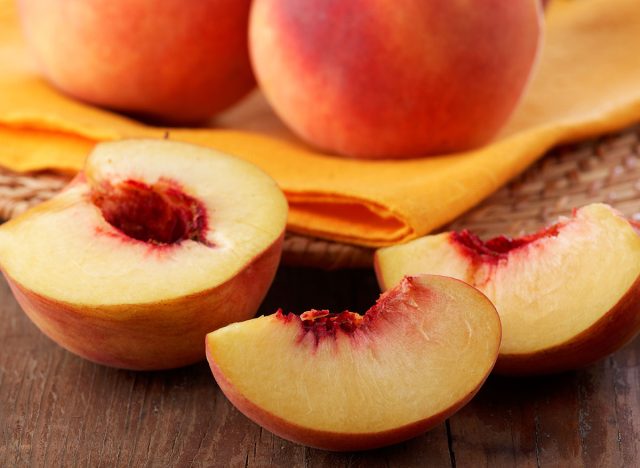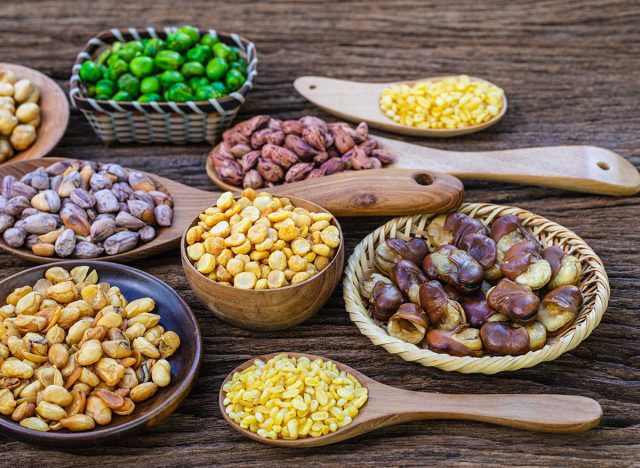Heart disease, unfortunately, continues to be a devastating problem for people in the United States. This is why organizations like the American Heart Association (AHA) are working to provide people with guidelines for caring for their heart health.
Each year, the AHA updates its dietary guideline report to feature the best foods to eat for your heart, as well as other important notes on eating patterns and cardiovascular risk factors to be aware of.
The AHA also notes that diet is not the sole factor in fighting heart disease. In fact, they live by "Life's Simple 7" rule, which takes seven approaches in pursuing better heart health. These include being aware of your cholesterol, staying active, maintaining a healthy weight, monitoring your blood pressure, learning about blood sugar, quitting smoking, and adopting a heart-healthy diet.
While diet isn't the only factor in preventing heart disease, it's extremely important. Not only can heart-healthy foods help lower your risk of disease, but your diet can bleed into other areas of the Simple 7 as well, like managing cholesterol and blood sugar, and helping you have the energy to exercise regularly.
With this in mind, here are some of the best heart-healthy foods you can eat, according to the latest AHA report. And for more healthy heart tips, check out Eating Habits to Lower Cholesterol After 50.

The AHA recommends eating plenty of fruits and vegetables on a daily basis, with an emphasis on leafy greens being one of the most nutrient-dense choices.
They state there are plenty of studies that have found that consuming a wide variety of produce on a daily basis can significantly lower your risk of cardiovascular disease, and that eating them whole rather than juiced is better because of the fiber content.
Their rule of thumb is to look for "deeply colored" produce because these tend to contain more nutrients, but every type of fruit and vegetable is going to provide you with important nutrients regardless.

Interestingly enough, the AHA specifically mentions peaches as one of the more nutrient-dense fruits to consume, although they say any type of fruit and vegetable can be a part of a heart-healthy diet.
The report also notes that consuming fruit in any form (fresh, frozen, canned, or dried) can give you the nutrients your heart needs, but it's important to look out for added sugar or salt.
Here are The Best Fruits to Help Lower Blood Sugar, Says Nutritionist

The AHA guidelines state that consuming whole grains on a daily basis, as opposed to only consuming them every now and then, can help lower your risk of cardiovascular disease, as well as stroke, metabolic syndrome, and coronary heart disease.
Whole grains, according to the report, are grains that still have the germ, bran, and starchy endosperm intact, and they are usually made with at least 51% whole grains to be classified this way.

Another dietary guideline for those focusing on their heart health is to incorporate plenty of plant-based protein into their daily diet.
Legumes (such as beans, lentils, chickpeas) are a healthy choice for your heart because they're high in fiber and protein, and they make for a healthy alternative to animal-based proteins.
Although the AHA recommends replacing animal proteins with plant-based proteins as much as possible, they warn that many meat-alternatives on the market are still highly processed and can contain higher levels of added sugar and preservatives. This is another reason that legumes are a safe, healthy choice.

Fish and other forms of seafood are an excellent part of a heart-healthy diet, and the AHA currently states that eating it at least two times per week can help lower your risk of heart disease, especially if it's consumed as a replacement for foods that are high in saturated fat content.
According to the AHA, eating fatty fish is associated not only with a lower risk of heart disease, but is also known to help lower incident of stroke, heart failure, and all-cause mortality, mainly due to its omega-3 content and because it serves as a healthy replacement for red meat.

There is still some debate over choosing full-fat dairy products versus non-fat or low-fat. However, despite the present debate, the AHA has concluded that in the long run, consuming dairy with less fat can help contribute to a healthier heart.
It's common for low-fat dairy products to come with more added sugar, so it's important when you're choosing a non-fat or low-fat dairy product to read the label carefully.

The AHA recommends getting protein from plant sources instead of meat as much as possible, but if you're craving chicken or poultry, you can still consume it in moderation as part of a heart-healthy diet.
What they don't recommend is consuming processed meats, which is any type of meat that has added preservatives or salt. Common types of processed meats include bacon, deli meat, sausage, and salami.
Replacing these processed meats with moderate amounts of unprocessed poultry can help you lower your risk of heart disease.

One major goal in eating a heart-healthy diet is to limit your number of trans and saturated fats, and replace them with unsaturated fat.
One way the AHA recommends doing this is by consuming more liquid plant oils (like olive oil, sunflower oil, and flaxseed oil), and consuming less animal-fat and tropical plant oils (coconut and palm oil). Over time this will decrease your consumption of trans and saturated fats and increase your consumption of healthier ones.

Along with general foods to add to your diet, the AHA also recommends steering clear of certain items that can increase your risk of heart disease.
The newest report recommends limiting your consumption of sugar-sweetened beverages like soda, as well as limiting your consumption of ultra-processed foods. They also suggest limiting the amount of salt you eat, as well as controlling how much alcohol you consume on a weekly basis.
Adhering to these guidelines and including heart-healthy foods into your daily diet can significantly improve your heart health and lower your risk of deadly disease.
The Best Foods to Eat for Your Heart, According to New AHA Guidelines — Eat This Not That - Eat This, Not That
Read More


No comments:
Post a Comment